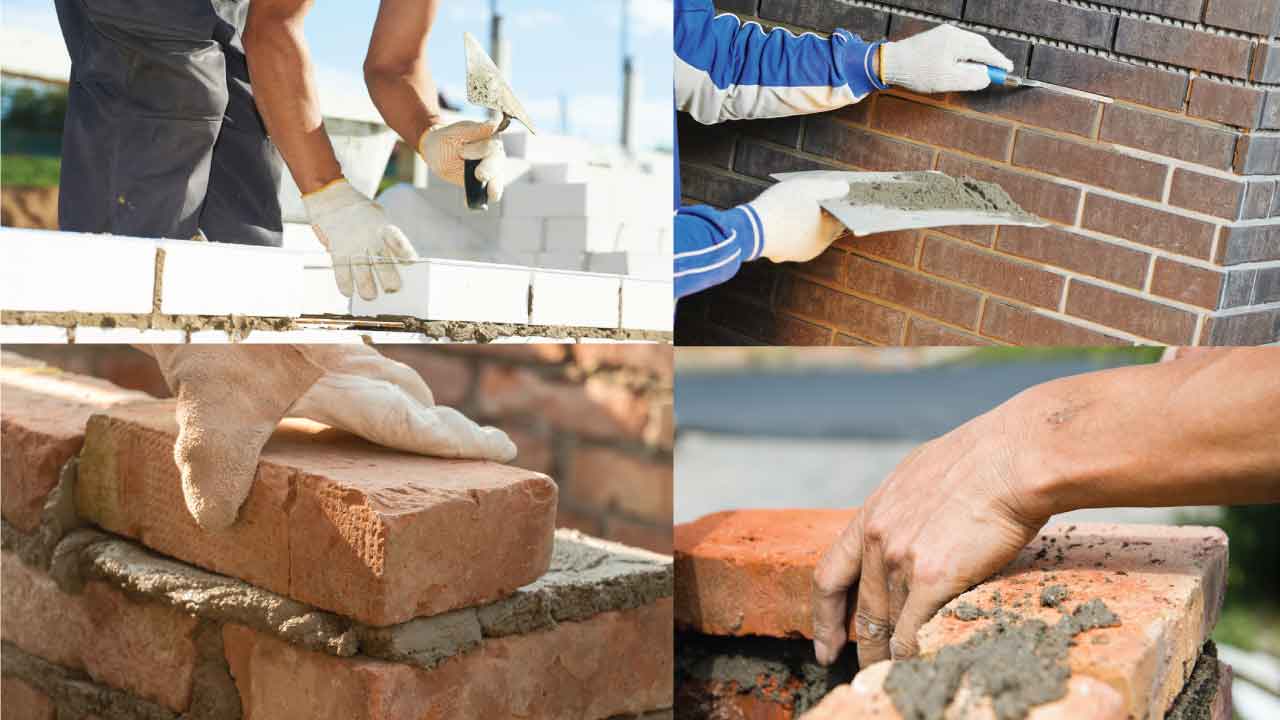Brickwork is a classic and enduring choice for homes and buildings, admired for its strength, beauty, and timeless appeal. However, even the most durable materials are not impervious to the forces of nature. Water is one of the most significant threats to brick structures, capable of causing cracks, erosion, and even structural instability if left unchecked. Preventing water damage in your brickwork is essential to maintaining its integrity and aesthetic appeal. Let’s explore practical ways to protect your brickwork and keep it looking its best.
Why Water Damage Is a Threat to Brickwork
Bricks and mortar are porous materials that naturally absorb water. While a certain amount of moisture is normal and often harmless, prolonged or excessive exposure to water can lead to serious issues. Rain, flooding, or even leaking gutters can allow water to seep into the bricks and mortar, causing problems such as:
- Cracking: When water freezes and expands in cold weather, it can cause bricks to crack or spall.
- Erosion: Persistent water exposure can erode mortar, leaving gaps and weakening the structure.
- Dampness and Mould: Moisture trapped in the brickwork can lead to damp interiors and the growth of mould, impacting both the building and the occupants’ health.
In cities like Sydney, where coastal conditions and occasional heavy rains can accelerate water damage, proactive care is essential. For those noticing loose or damaged mortar, services like brick repointing Sydney residents rely on can be a valuable solution to restore and protect brick structures.
Signs of Water Damage in Brickwork
Spotting early signs of water damage can save you time, effort, and money. Keep an eye out for:
1. Cracks in Bricks or Mortar
Small cracks may seem harmless, but they allow water to seep deeper into the structure, exacerbating damage over time.
2. Efflorescence
This is the white, powdery residue often seen on brick surfaces. It’s caused by water drawing salts to the surface as it evaporates.
3. Spalling
Spalling occurs when the face of a brick crumbles or flakes away. It’s a clear indication of water infiltration and freeze-thaw cycles.
4. Damp Spots or Discolouration
Dark patches on your brickwork are a tell-tale sign of trapped moisture.
5. Loose or Missing Mortar
Gaps in the mortar joints compromise the stability of the brickwork and make it more vulnerable to water.
Steps to Prevent Water Damage in Brickwork
Preventing water damage is often a matter of regular maintenance and adopting a few key practices. Here’s how to protect your brickwork:
1. Inspect Your Brickwork Regularly
Routine inspections are your first line of defence. Check for cracks, gaps in mortar, or signs of efflorescence every six months, especially after heavy rainfall.
2. Maintain Gutters and Downpipes
Leaking gutters or clogged downpipes can direct water onto brick surfaces, accelerating damage. Clean them regularly and repair any leaks promptly.
3. Seal the Brickwork
Applying a breathable sealant to your bricks can prevent water absorption while allowing trapped moisture to escape. Ensure you use a product specifically designed for brickwork to avoid sealing in moisture.
4. Repair Mortar Joints
Damaged or eroded mortar joints allow water to penetrate deeper into the brickwork. Repointing, which involves removing old mortar and replacing it with fresh material, restores the protective barrier. This is particularly vital in older homes where mortar may have deteriorated significantly.
5. Address Cracks Immediately
Don’t ignore cracks in your bricks or mortar. Fill them with a compatible material to prevent water from seeping in and causing further damage.
The Importance of Brick Repointing
Repointing is one of the most effective methods to protect brickwork from water damage. Over time, mortar joints can deteriorate due to weather exposure, leaving bricks exposed and vulnerable.
What Is Brick Repointing?
Brick repointing involves removing the damaged or eroded mortar and replacing it with fresh mortar to restore the structure’s strength and weather resistance.
Benefits of Repointing
- Prevents Water Infiltration: Repointing seals gaps and prevents moisture from entering the structure.
- Restores Structural Integrity: Fresh mortar reinforces the brickwork, improving stability.
- Enhances Appearance: Properly repointed brickwork looks clean and well-maintained.
- Extends Lifespan: Repointing is a cost-effective way to prolong the life of your brick structure.
For homeowners in areas prone to heavy rain or coastal weather, such as Sydney, regular repointing by professionals ensures long-lasting protection.
Protecting Brickwork in Coastal or Rain-Prone Areas
Australia’s diverse climate poses unique challenges for maintaining brickwork. Coastal areas are particularly harsh due to salt exposure, while rain-prone regions require extra attention to water management.
1. Shield Against Salt Damage
In coastal regions, salt can penetrate bricks and mortar, leading to deterioration. Applying a salt-resistant sealer and regularly washing exposed brickwork can help mitigate this risk.
2. Improve Drainage
Ensure your property’s drainage system directs water away from the building. Installing French drains or sloping the ground away from the foundation can prevent water pooling near your walls.
3. Use Weather-Resistant Mortar
In areas with extreme weather, use mortar that’s formulated to withstand moisture and salt exposure.
The Role of Landscaping in Brickwork Protection
Landscaping choices can significantly impact your brickwork’s susceptibility to water damage.
1. Avoid Overwatering Nearby Plants
Water from sprinklers or garden beds can splash onto brick surfaces. Adjust irrigation systems to minimise water contact with the walls.
2. Plant Trees and Shrubs Wisely
Roots from large trees can disrupt foundations and allow water to pool near brickwork. Maintain a safe distance between vegetation and your home.
3. Install Permeable Surfaces
Hard surfaces like concrete driveways can cause water to pool near brick walls. Opt for permeable materials like gravel or pavers to improve drainage.
When to Call in the Professionals
While minor maintenance tasks can be handled by homeowners, certain situations require professional expertise:
- Extensive cracks or damage to the brickwork.
- Persistent efflorescence or spalling despite regular cleaning.
- Signs of structural instability, such as leaning walls or bulging bricks.
Professional bricklayers and repointing specialists can assess the extent of the damage and recommend the best course of action.
Final Thoughts
Preventing water damage in your brickwork is all about vigilance and care. Regular inspections, prompt repairs, and proactive measures like repointing and sealing can go a long way in preserving the beauty and functionality of your bricks.
For those in Sydney, where weather conditions can accelerate wear and tear, investing in brick repointing experts recommend can provide peace of mind and long-lasting results. With proper care, your brickwork will not only stand strong against the elements but also continue to add character and charm to your home for generations to come.
Take the time to care for your brickwork, and it will reward you with enduring durability and timeless appeal.
Q&A
1. How can I prevent water damage in my brickwork?
Preventing water damage in brickwork involves regular inspections, prompt repairs, and proactive measures such as repointing and sealing. These steps help protect your bricks from water penetration and ensure their longevity.
2. Why is repointing important for brickwork maintenance?
Repointing is important because it helps fill in gaps or cracks in the mortar joints, preventing water from entering and damaging the bricks. It also strengthens the overall structure, ensuring the brickwork remains secure and intact.
3. How can weather conditions in Sydney affect my brickwork?
In Sydney, weather conditions such as heavy rainfall and humidity can accelerate wear and tear on brickwork. This can lead to water infiltration, weakening the structure and causing damage to both the bricks and mortar.
4. What are the benefits of hiring brick repointing experts in Sydney?
Hiring brick repointing experts in Sydney provides peace of mind and ensures professional, high-quality results. Experts have the knowledge and tools to carry out effective repairs, prolonging the life of your brickwork and protecting it from water damage.
5. What are the long-term advantages of caring for my brickwork?
By caring for your brickwork through regular maintenance, you ensure its durability and functionality. Proper care, such as repointing and sealing, allows the brickwork to stand strong against the elements while adding enduring charm and character to your home.

